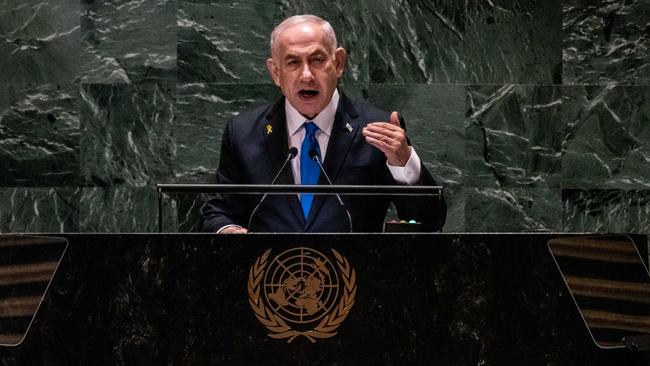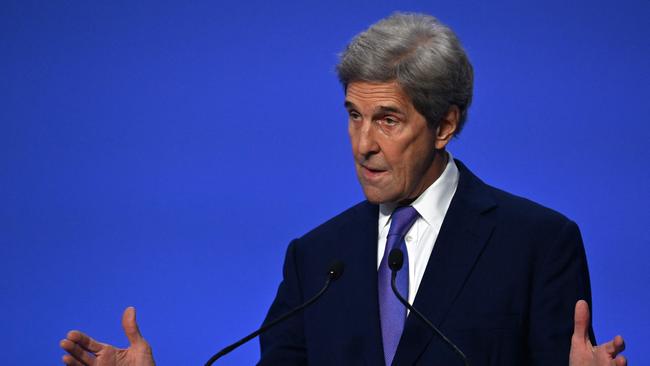Benjamin Netanyahu’s triumphal week

Team Biden offered the usual advice: Don’t escalate. Don’t provoke Hezbollah. Make still more concessions to get to yes with Hamas. Don’t anger Iran when the “moderates” are staging a comeback.
Fortunately for himself and the nation he leads, Mr. Netanyahu had the clarity of mind to ignore Washington’s standard talking points. The result was Israel’s greatest string of triumphs since the Six Day War. It was also a significant boost for American and Western interests at a dangerous time.

Nothing as vulgar as military success, however, can shake the loathing of the West’s diplomatic establishment and chattering classes for Israel’s prime minister. There are deep-seated reasons for this. Western foreign-policy elites desperately want to believe that we live in a stable, rules-based international order and that successful foreign policy in our enlightened era depends less on military strength and more on diplomacy, respect for international law and scrupulous attention to human rights. The further that reality diverges from this pleasant illusion, the more desperately many in the diplomatic and journalistic establishments cling to their dreams.
Nowhere is the game of Let’s Pretend more assiduously practised than in the world of Western Middle East policy. In the real world, Iran is a malign and restless power whose fanatical ambition can only be resisted by force. The Palestinian people, whatever the historical rights and wrongs of their predicament, currently lack the leadership, institutions and national consensus that could make a two-state solution work. Until and unless that changes, more Jewish settlement of the West Bank is inevitable. The United Nations Relief and Works Agency, whatever else it does, enables and nourishes terrorism.
The international laws of war, like it or not, have limited relevance in a region in which the U.N. Charter itself is largely a dead letter. Real peace, in the sense that Germany and France have real peace with their security anchored in institutions and their relations primarily governed by law, is not on the table for Israel or indeed for any state in the Middle East anytime soon.
All of these things are true, but respectable Western opinion refuses to accept any of them. In the West’s view, peace with Iran is just a couple of diplomatic meetings away. A few simple Israeli concessions will usher in a stable two-state solution. That conflict resolved, a rules-based, democratic regional order is just around the corner, and only the blind selfishness and political immaturity of local leaders block the otherwise inexorable march of utopia across the Middle East. And if none of this is actually true now, it will become true if enough of us clap our hands for Tinkerbell.
Back in the balmy days of uncontested American supremacy following the collapse of the Soviet Union, the West was strong enough that Middle Easterners were willing to indulge our illusions. As the U.S. and, to a much greater extent, the European Union allowed their military power to erode and frittered away their diplomatic credibility, Western influence in the Middle East unsurprisingly waned.

Rather than blaming themselves for their declining influence over friends and foes alike in the Middle East, Western leaders and the chattering classes around them lay the responsibility on unenlightened locals. If Mr. Netanyahu were only as wise as John Kerry, many otherwise intelligent people passionately believe, Hamas would release the hostages, a stable and peaceful Palestinian state would emerge in Gaza and the West Bank, and Iran would make peace. And if he could only be nudged out of power in Jerusalem, a wiser, better and stronger leader would emerge, and peace like the morning dew would descend across the Middle East.

To believe otherwise would be to acknowledge that the world is not moving toward utopia, that international life consists of hard and often bitter choices, and that indulging false hopes endangers what little peace and security our poor embattled planet has achieved. That is more truth than the West is yet ready to hear, so the Bibi-bashing will continue.
Mr Netanyahu is no saint, and he is anything but infallible. Israelis have made moral and strategic errors in the past and will no doubt make more in the future. That is the nature of politics. But until the West shakes off the dream that we live on a posthistorical planet, Israelis and Arabs alike will have to disregard Western advice to chart their own courses through our difficult time.
The Wall Street Journal





Prime Minister Benjamin Netanyahu has had one of the best weeks in the history of modern politics. Just a few days ago, the streets of Israel were filled with protesters. Obstreperous coalition allies sought to tie his hands. Team Biden rebuked his lack of vision and courage. Diplomats from many countries boycotted Mr. Netanyahu’s United Nations appearance while Iran’s call for moderation and calm was widely praised.